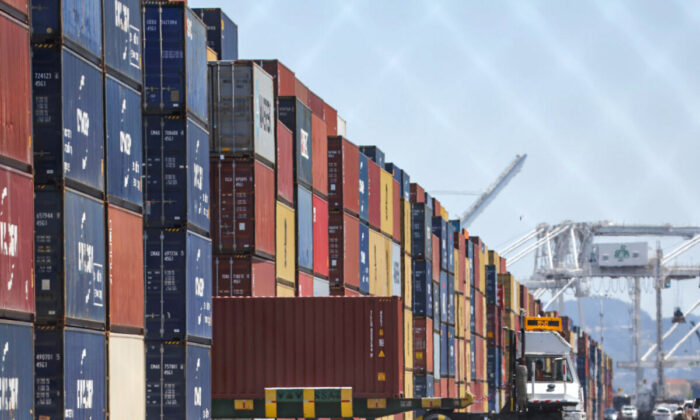By Naveen Athrappully
Global supply chains are changing their inventory models, shifting from “just-in-time” (JIT) to “just-in-case” (JIC) models amid supply disruptions and uncertainties, according to SAP UK.
Almost every organization in the UK admits that their supply chain needs improvement, with more than half admitting to needing a significant improvement to the supply chains, says a June 8 SAP press release.
Since the COVID-19 pandemic, 66 percent of UK businesses have experienced delays in the production and delivery of goods and services. While 64 percent experienced loss of revenue, 58 percent witnessed a loss of customers. Under these circumstances, 84 percent of businesses are now planning to move from a JIT model to a JIC supply chain.
Under the JIT model, businesses only receive inventories when it is needed for production. In contrast, JIC stocks up inventories much ahead of time.
While JIT models reduce waste in manufacturing as much as possible, the goal of JIC is to ensure there are minimal chances of low stocks so as to avoid any delay in production schedules. Almost a quarter of businesses are expecting supply chain issues to last until summer 2023, according to SAP.
Speaking to Supply Chain Digital, a portal dedicated to the supply chain industry, SAP UK & Ireland Managing Director Michiel Verhoeven pointed out that for the past several decades, supply chain management has focused on cost, prioritizing keeping stocks lean and fast. This is different from “being agile and resilient,” he stated.
“With the end of JIT models, businesses have to start putting the same expectations on their supply chain as they do on their wider business, structuring themselves to be JIC, so that when disaster occurs, they can adapt. Those who don’t make this change are in for a very tough 18 months,” Verhoeven said.
In the United States, the White House had recently announced the appointment of Retired General Stephen R. Lyons as the new Port and Supply Chain Envoy to the Biden-Harris Administration Supply Chain Disruptions Task Force. The task force was established in June last year to address supply and demand imbalances.
“Global supply chains will remain fragile as long as the pandemic continues to disrupt ports and factories around the world, and a lot of work remains to reduce shipping delays and costs for American families,” Transportation Secretary Pete Buttigieg said in a May 27 news release by the U.S. Department of Transportation.
According to Brandon Daniels, chief executive at Exiger, which has developed software to analyze and reshape supply chains, the exclusion of Russia from global supply chains has complicated existing issues. JIT delivery systems might be nearing their end, he told The Guardian.
“The diversification of our supply chains is critical to our economic prosperity and national security,” Daniels said. “I think you will see substantial revisions to just-in-time delivery models, leading to better warehouse management and longer stockpiles that mitigate the risk of material shortages.”

